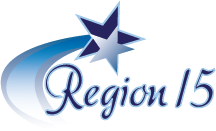-
Speech-Language Pathologists in the public schools serve students with speech and/or language impairments. A speech or language impairment is defined as “ a communication disorder, such as stuttering, impaired articulation, a language impairment, or a voice impairment, that adversely affects a child’s educational performance” (C.F.R. §300.8.). Speech and language disorders can also result from a variety of other impairments, including cerebral palsy, cleft palate, hearing loss, autism, learning disabilities and traumatic brain injuries.
The American Speech-Language-Hearing Association (ASHA) defines the roles and responsibilities of speech-language pathologists (SLPs) who provide speech-language services in schools:
Critical Roles – working across all levels, serving a range of disorders, ensuring education relevance, providing unique contributions to curriculum, highlighting language and literacy, and providing culturally competent services.
Range of Responsibilities – Prevention, Assessment, Intervention, Program Design, Data Collection and Analysis, and Compliance.
Collaboration with - other school professionals, universities, community members/agencies, families, and students.
Leadership – advocacy, supervision and mentorship, professional development, parent training, and research.
For more detailed information regarding these roles and responsibilities please go to ASHA’s site.



